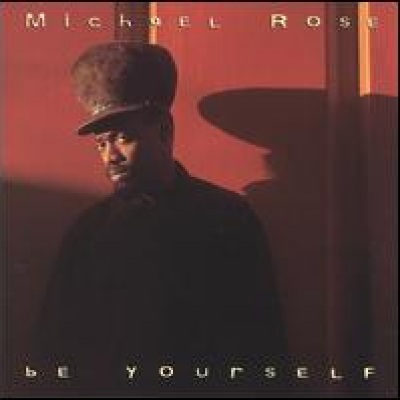
Be Yourself
by Jo-Ann GreeneNothing could equal Niney Holness' incredibly hefty beats and dancehall sheen that swelled across Michael Rose's eponymous album, so the singer doesn't even try. Inevitably, then, the self-produced Be Yourself sounds lighter weight than its predecessor. Regardless though, this album is a better backdrop for the singer's vocal and lyrical talents, with Holness, the listener is always drawn to the production, to the gradual neglect of the actual artist. Here, Rose's powerfully emotive vocals remain the focus, with the rhythms providing excellent support. The sound itself is diverse, spilling back and forth from roots to sharp, hard dancehall, and occasionally slipping in more urban American elements. The entire record is solidly dance friendly, with Rose's lyrics provide a full course meal for thought. From the scathing "Dummy" and the equally admonishing "Rude Boys (Back In Town)," the singer puts the dancehall firmly in its place, while "Be Yourself," a fiery dancehall number, chides his own aping fans. A trio of songs discuss cultural issues and Rastafarian beliefs, with the sufferer's cry of "Agony" clad in dancehall rags, boasting a juttering, stripped down rhythm. In contrast, "Everything Is Fine" is an upbeat, sparkling number, that sways like palm trees in a breeze, and lifts the mood of the entire album, with "It's Beautiful" playing the same role for the dancehall. Notable amongst the revived older numbers is a hardcore raggafied "Guess Who's Coming to Dinner," admittedly intriguing, but not overly satisfying. Rose seems to enjoy twisting songs across genres, with ostensibly roots numbers being shoved into the dancehall, and dancehall themed tracks being pounded by roots arrangements. It's a clever approach, virtually a deconstruction of the genres' core concepts, and while not always successful, it's guaranteed to grab your attention. Rose continues to play the role of rebel, and this is yet another salvo in his musical attack.
